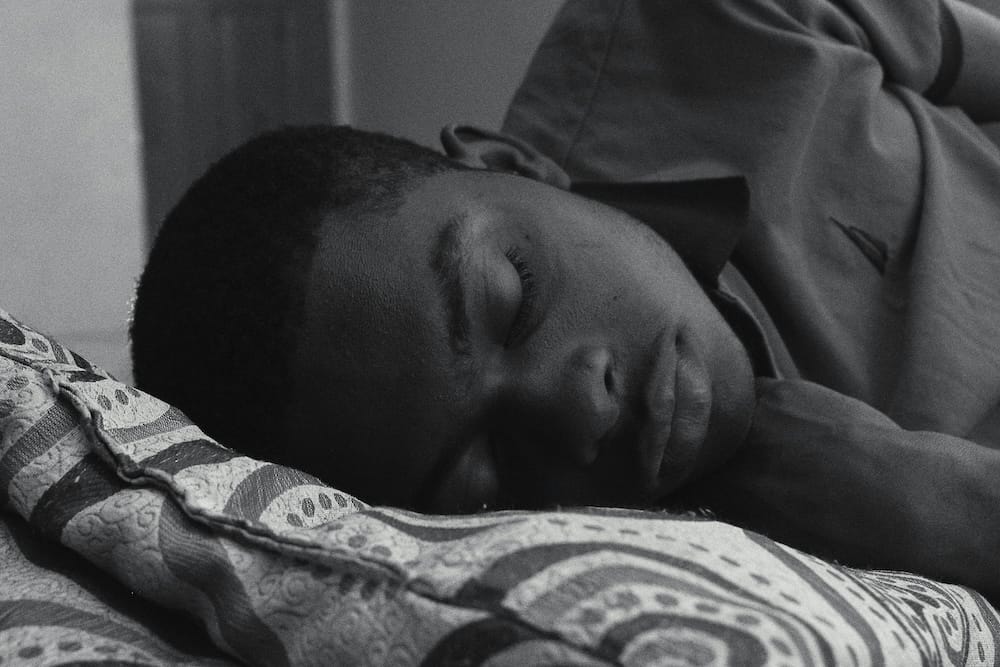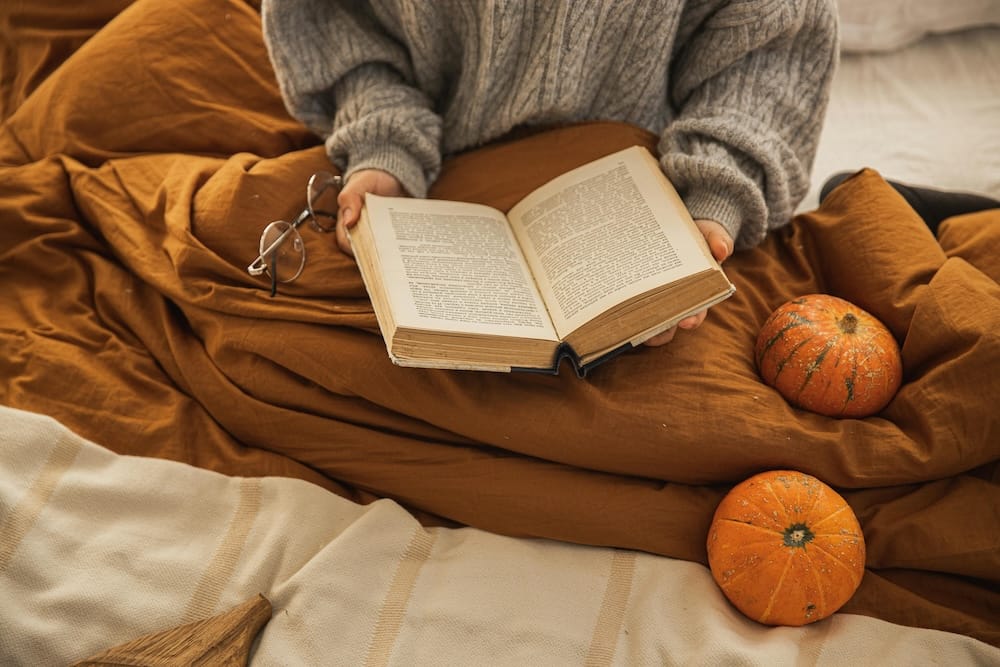Sleep stories are calm, soothing, fiction or non-fiction stories, designed to help you drift off. So, which is the right one for you?
If lavender essential oil, guided meditations, and breathing exercises are not alleviating your insomnia, you may be ready to start a new chapter at bedtime. Unlike most narratives, which are crafted to spark the reader’s curiosity, sleep stories are designed with slumber in mind. “Sleep stories require less active participation, making them more accessible and appealing to some individuals, especially those who find it challenging to quiet their minds,” psychotherapist Tina Chummun explains.
Sleep stories tend to involve gentle themes, minimal plots, and peaceful mindfulness elements, with nothing to over-excite the listener. Think strolling through a botanical garden scented with roses, or sipping green tea in Japan’s misty mountains.
If you are among the third of people in the UK reported to experience insomnia, you will know that it often involves restless thoughts that circle the mind. The idea is that by replacing ruminations with pleasant imagery and imagined sensory experiences, sleep stories can help us dirft off.
“Incorporating a sleep story into a nightly routine can help establish a sense of structure, emotional safety, and predictability,” explains Tina Chummun, “which can be comforting for individuals.” She notes that these narratives can also help the individual to look forward to going to sleep, which encourages more calmness and relaxation.

However, it can be tricky to know which ones might work best for you. Too much choice can increase anxiety, so here are some considerations to help with your selection.
Non-fiction feel or in the realm of fantasy?
Some sleep stories have a non-fiction tone, whereas others feel more fantastical. A common theme for sleep stories is travel. Phoebe Smith is a sleep story writer for Calm, the well-known sleep and meditation app, but she also has a wealth of experience in travel writing, which is why these stories, in particular, are incredibly immersive. As travel prompts a plethora of sensory experiences, these stories are often rich in imaginary mindfulness. A story about a train journey through India, for example, might evoke the aroma of spicy chai and sunset colours.
Other stories, while not journeys, focus on sensory-rich processes such as perfume-making, cooking, or gardening. Some are set in the past and offer evocative imagery such as a picnic in Edwardian England high summer.
If non-fiction style sleep stories might not be your cup of tea, maybe you fancy hunkering down in a hobbit house or relaxing with Alice in her Wonderland? Many sleep stories draw on classic or children’s literature, without the energetic parts! Others re-tell mythology, folk, or fairytales highlighting whimsy, cosiness, or nature. Fancy a forest forage with unicorns or diving with mermaids? Your wish is a sleep story’s command! If you gain pleasure from nostalgia or being part of traditions bigger than your own, then these may be for you.
Sense of place
For many, location is the most important factor in unlocking relaxation. Some people might resonate more with stories set in nature, whether wild locations like Patagonia or gentler ones like a wildflower meadow. From mountain-top cabins amidst blizzards to hammocks overlooking turquoise lagoons, sleep stories cover every corner of the globe, season, and weather.
For those who love autumnal hues and thick-knit jumpers, perhaps a story set during the New England fall? Others may find urban settings more comforting, even though these are traditionally less associated with relaxation. Water is often synonymous with letting go, which may entice sleep; imagine an ocean lapping a pebbled shore or a brook babbling past an English cottage garden.

Point of view and narration
Sleep stories take a variety of points of view; some use the first-person ‘I’, others take the second-person ‘you’, or a character’s name. Secondly, as Tina Chummun notes, some include “deep breathing or progressive muscle relaxation” creating “a sense of validation and support”. Finally, it’s only natural that the sound of certain narrators’ voices work more for some individuals than for others. Feel free to take as many nights as you need to explore which styles make you feel the most relaxed and sleepy. You may find out in the mornings that you didn’t make it to the end of the story!


Comments